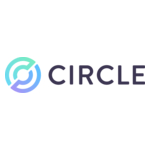2017: South Africa – blockchain fizzle or sizzle?
While the maturity of blockchain discussions and advances are at different stages of development around the world, blockchain is said to be at the height of the Gartner hype cycle. This implies that 2017 will be the year where disillusionment with the technology begins. However, 2017 may also see some real breakthroughs with its application and the emergence of pockets of the first concrete results.
A part of the constraint on the application of blockchain is the maturity of the technology and its continuing evolution. While on the surface it may appear that some blockchain initiatives are being tainted by the cycle of disillusionment, in reality, many institutions are very focused on testing different applications to assess the full benefits of the technology and to understand its real-world constraints.
A lot of the initial excitement over blockchain technology related to its potential to eliminate intermediaries from processes, creating a peer-to-peer environment. While the role of intermediaries is likely to change, it is unlikely that they will be removed from the value chain. Intermediaries offer value-added services, which could become the main focus of their activities and contribute to more efficient markets across the world.
Experimentation with blockchain technology is still in its infancy. There are a number of applications that have been explored internationally that could be very relevant to South Africa’s financial sector. For example, blockchain technology could be used to speed up remittances and cross-border payments, and has great potential to support greater financial inclusion. Blockchain has also been tested in trade finance and this appears to be a good use case for South Africa.
The use of the technology has been largely driven by the financial sector and by organisations – including Strate, which formed a consortium with other central securities depositories (CSDs) – focusing on exploring opportunities for blockchain application in the capital markets. This includes in the areas of proxy voting, cross-border collateral, clearing and settlement of equity trades and a real-time register of securities ownership.
While financial services is the area that has been highly profiled for blockchain application locally, internationally blockchain technology is being pioneered in non-financial areas, with some success. Some of the biggest areas of potential use are in government, the non-profit funding sector and in the manufacturing, insurance, medical and retail sectors. Blockchain technology is possibly best applied in the fight against fraud or in industries where there is a lack of trust – it can be used to ensure transparency in how funds are allocated and spent and can be used to track the movement of assets. It therefore potentially eliminates opportunities for corruption – a much needed focus around the world and particularly in developing countries.
In South Africa, blockchain technology could be used in a number of ways to make public registers more transparent and to automate processes. This would result in public ownership registers that are more efficient and would allow attempted fraud to be traced back to the perpetrators. All public registers or ledgers could fall into this category, for example, the Deeds Register or any licence register.
Other areas with great potential benefit are where there is a need to share data on a collaborative basis, or where the owner of data should be able to give or revoke access their data. For example, there may be instances where an individual may wish to share their health status in a limited manner. The blockchain could give individuals great power over their personal information and records.
For blockchain to deliver on its full potential, there are dependencies on having reliable know your customer (KYC) processes and to integrate digital currencies into the blockchain to ensure simultaneous payment with the exchange of assets. However, this seems to be some way off in the future. For now, the focus may be on applying the technology in more limited form as part of a broader process.
It is important that a pragmatic approach is taken and that the technology is only applied to instances that it is truly suited for – otherwise, the cost and utility cannot be justified.
Tanya Knowles, executive director of Fractal Solutions, a division of Strate (South Africa’s CSD)












































